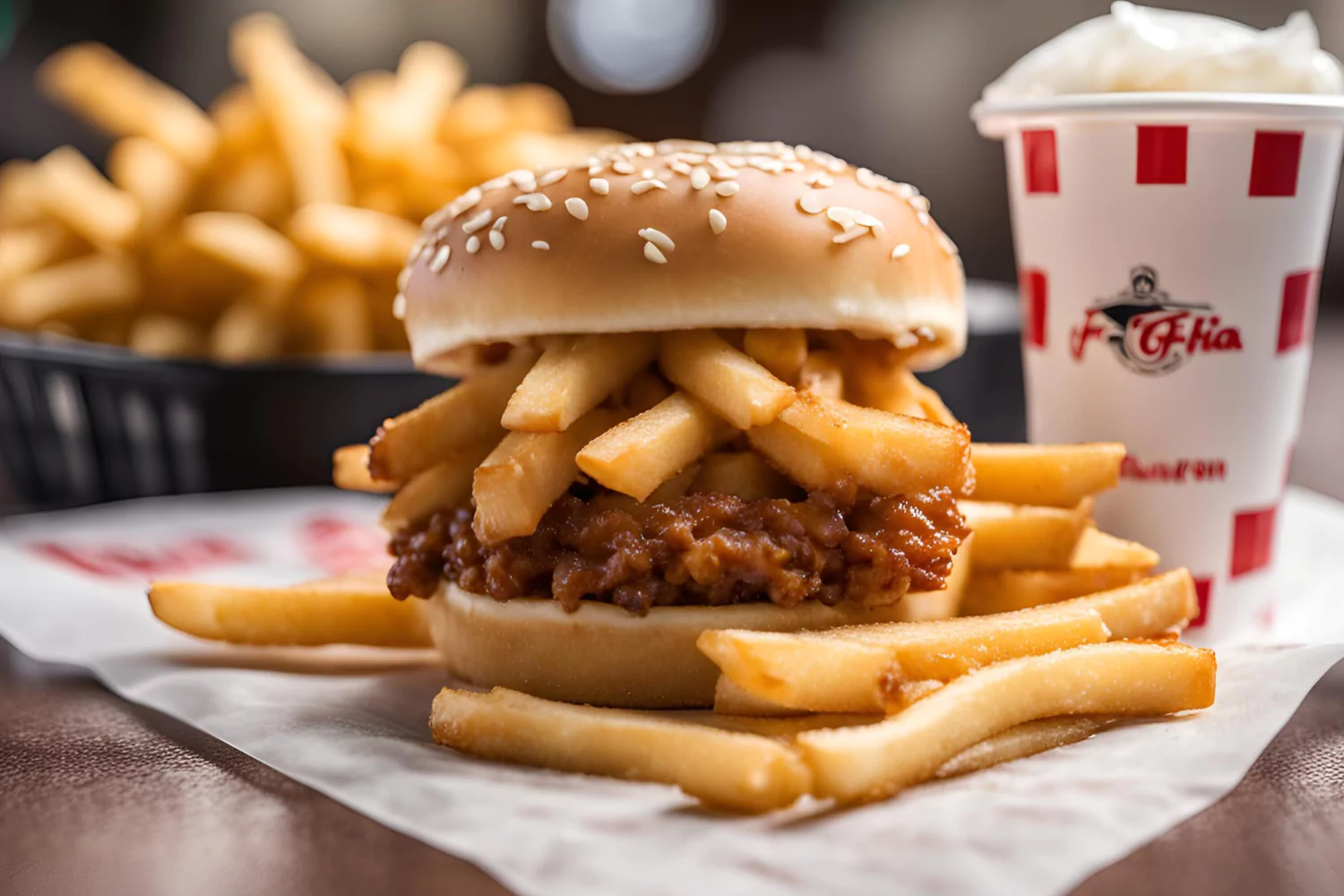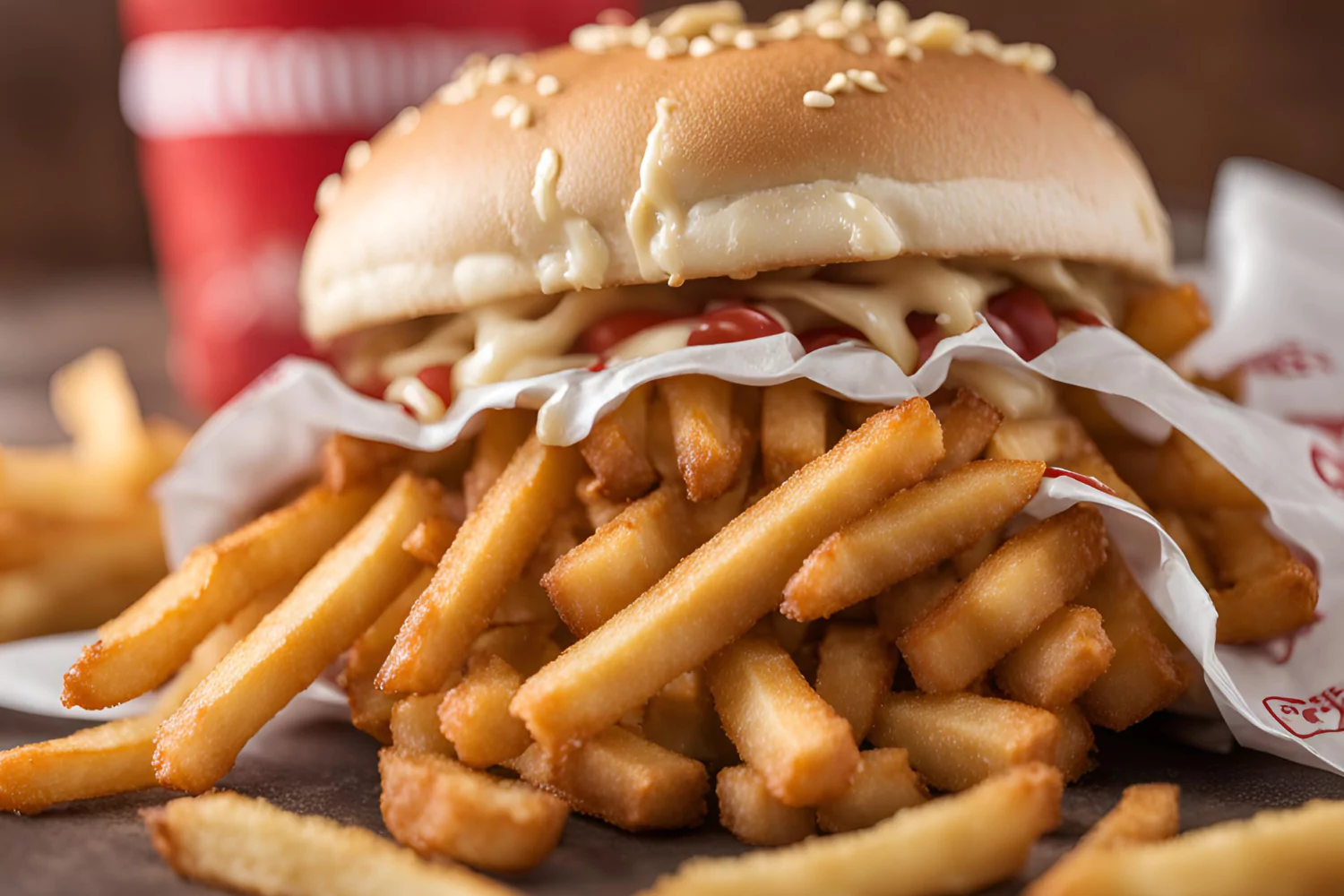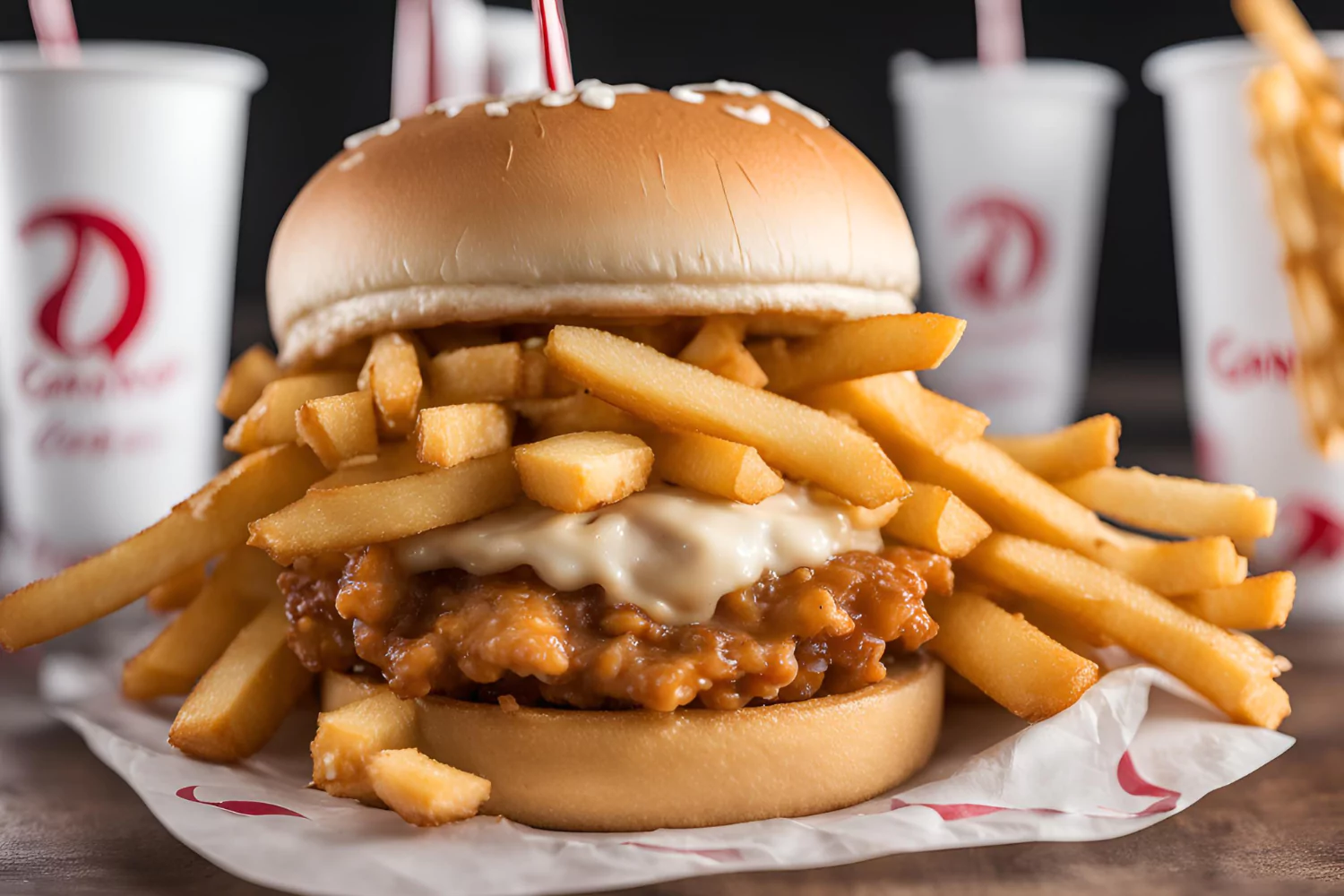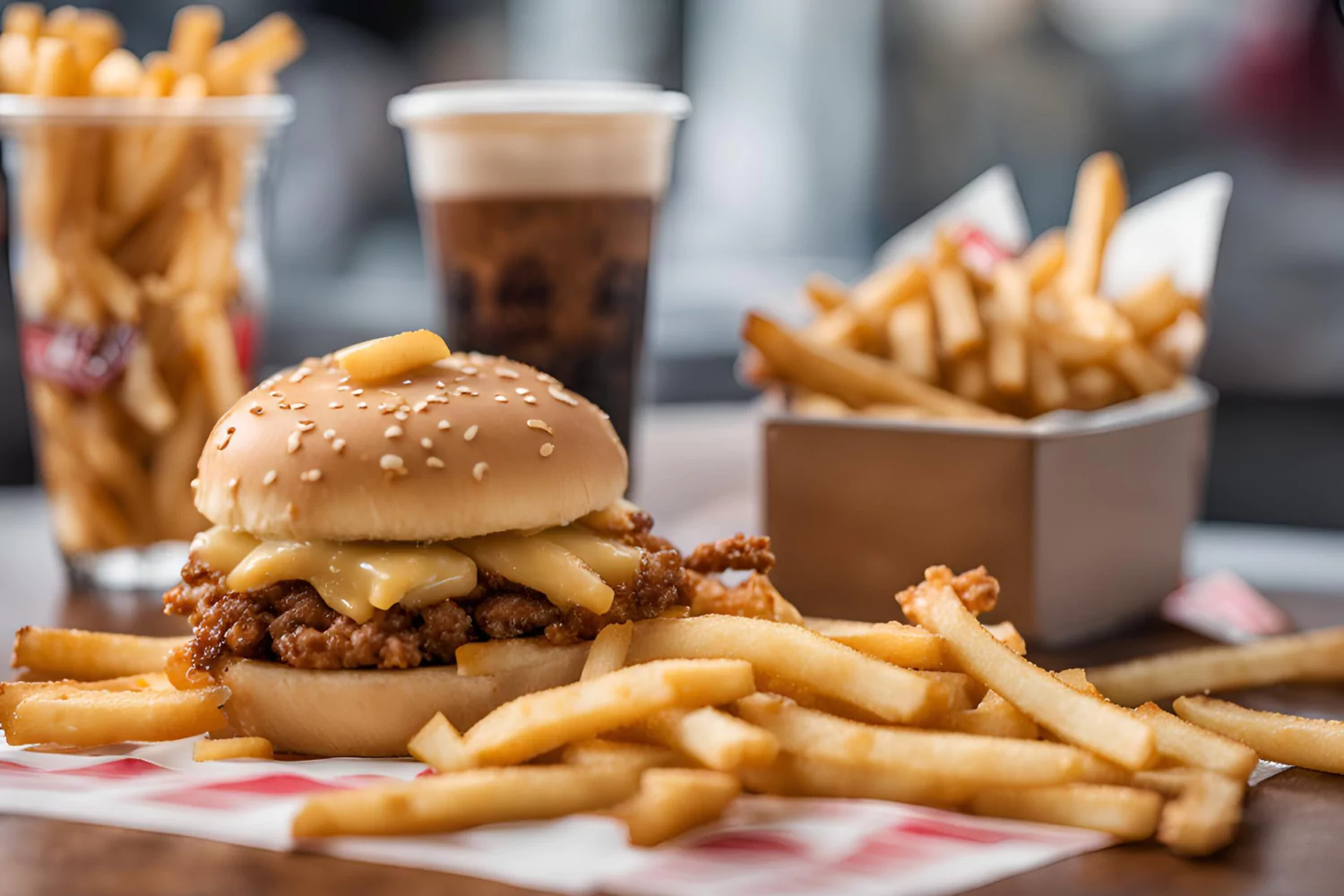of whether Chick-fil-A is renowned for its tasty menu, especially its waffle fries. But for Muslims adhering to halal dietary guidelines, the question arises: Are Chick Fil A fries halal? In this article, we’ll dive deep into the ingredients, cooking methods, and various perspectives to help you make an informed decision. Let’s explore the details step-by-step.
Introduction to Are Chick Fil A Fries Halal?
Introduction to Chick-fil-A’s Popularity
Chick-fil-A is a beloved fast-food chain known for its delicious chicken sandwiches and iconic waffle fries. It’s a favorite among many for its taste and quality. However, for Muslims who follow halal dietary guidelines, a crucial question arises: Are Chick-fil-A fries halal? This article delves into this question, examining the ingredients, preparation methods, and different perspectives to help you make an informed decision.
Explanation of What “Halal” Means
Halal is an Arabic term meaning “permissible” and refers to what is allowed under Islamic law. In the context of food, halal signifies that the food is prepared following specific guidelines, including humane slaughtering of animals, the absence of forbidden substances, and preventing cross-contamination with non-halal items. Ensuring food is halal is essential for Muslims adhering to these dietary laws.
Overview of Halal Certification
To ensure food meets halal standards, many products undergo a certification process by recognized Islamic authorities. This rigorous process includes verifying the ingredients, preparation methods, and overall handling of the food items. Halal certification guarantees that the food complies with Islamic dietary laws, providing peace of mind for consumers.
Chick-fil-A’s Position on Halal Certification
Chick-fil-A has not obtained halal certification for its products in the US and Canada. This lack of certification means there is no official guarantee that any of their menu items, including the fries, meet halal standards. While Chick-fil-A strives to satisfy its diverse customer base, it has not tailored its menu to meet all dietary preferences, including halal.
Are Chick-fil-A Fries Halal?
To determine it, it is essential to examine their ingredients and preparation methods. While the fries themselves might not contain any explicitly haram (forbidden) ingredients, the potential for cross-contamination during cooking raises significant concerns for those who strictly follow halal dietary laws. Therefore, understanding the detailed processes involved is crucial to answering the question.
Chick-fil-A’s General Halal Status

Overview of Halal Certification
Halal certification is a meticulous process ensuring that food products comply with Islamic dietary laws. This involves verifying the ingredients, preparation methods, and overall handling of food items. For food to be considered halal, it must be free from haram (forbidden) substances, and animals must be slaughtered according to Islamic guidelines. Certification is typically granted by recognized Islamic authorities who inspect and verify these practices to ensure compliance.
Chick-fil-A’s Position on Halal Certification
Chick-fil-A has not obtained halal certification for its products in the US and Canada. This lack of certification means that there is no official guarantee that any of their menu items, including the fries, adhere to halal standards. Chick-fil-A has expressed their dedication to customer satisfaction but has noted that catering to all dietary preferences is challenging due to their diverse customer base.
Focus on Chick-fil-A Fries
Are Chick-fil-A Fries Halal?
When considering whether Chick-fil-A fries are halal, it’s important to examine the ingredients and preparation methods. While the fries themselves might not contain any explicitly haram ingredients, the potential for cross-contamination during cooking poses a significant concern for strict halal adherence. Ingredients and cooking practices must align with halal guidelines to ensure compliance.
Cooking Methods and Cross-Contamination Concerns
Chick-fil-A’s fries are cooked in canola oil and seasoned with a unique blend of spices. Although they are cooked separately from breaded chicken products, the use of shared equipment and surfaces can lead to cross-contamination. This means that even if the fries do not directly contain haram ingredients, they may still come into contact with non-halal substances, making them unsuitable for those who strictly follow halal dietary laws (Halal In Islam).
Detailed Ingredient Analysis
Ingredients in Chick-fil-A Fries
Chick-fil-A fries are made from potatoes and cooked in canola oil. They are then seasoned with a blend of spices that includes salt, dextrose, and natural flavors. However, some additives and flavorings may contain milk derivatives or other non-halal components. For instance, certain flavorings might use animal-derived enzymes, which are not permissible under halal guidelines (Halal In Islam).
Alternative Perspectives
Different Views on Consuming Chick-fil-A Fries
There are varied opinions among Islamic scholars on the permissibility of consuming Chick-fil-A fries. Some argue that since the primary ingredients are halal, the fries can be considered permissible, especially if there is no direct contamination. Others caution against consuming them due to the lack of explicit halal certification and the potential for cross-contamination. The decision often depends on individual interpretations of halal dietary laws and personal levels of strictness.
Part 6: Halal Alternatives and Recommendations
Halal Alternatives to Chick-fil-A Fries
For those seeking halal alternatives, many fast-food chains offer certified halal fries. Restaurants dedicated to halal cuisine ensure their food meets Islamic dietary laws, providing peace of mind for Muslim consumers. Exploring these options can lead to enjoyable and worry-free dining experiences. Here are some helpful resources:
- Understanding Halal Certification – Islamic Food and Nutrition Council of America
- Islamic Dietary Laws – Halal Fast Food Options
Understanding Why Chick-fil-A Fries Are Not Halal

Are Chick-fil-A Fries Halal? Key Factors to Consider
To determine that, it’s crucial to understand the factors that influence their halal status. This involves looking at both the ingredients and the cooking methods. Despite their simplicity, the preparation of these fries includes several elements that may not align with halal guidelines.
Key Ingredients in Chick-fil-A Fries
The ingredients list of Chick-fil-A fries includes potatoes, canola oil, and a special seasoning blend. While potatoes and canola oil are typically halal, the seasoning blend may contain additives that are not. For example, some flavorings might include milk derivatives or other substances that are not permissible under halal dietary laws. Thus, the question, of are Chick-fil-A fries are halal, largely depends on these hidden ingredients.
Cooking Methods and Cross-Contamination Risks
Chick-fil-A fries are cooked in canola oil, often in fryers that might also be used for non-halal items. The risk of cross-contamination is significant because the same oil could be used for cooking chicken or other products that do not meet halal standards. This shared cooking environment is a major factor in determining if chick-fil-a fries are halal (Halal In Islam).
Perspectives from Islamic Scholars
Opinions among Islamic scholars vary regarding the consumption of Chick-fil-A fries. Some scholars believe that since the primary ingredients are halal, the fries could be permissible if there is no direct contamination. However, others argue that the lack of explicit halal certification and the potential for cross-contamination make it safer to avoid these fries.
Consumer Inquiries and Responses
Are Chick-fil-A Fries Halal? Customer Experiences and Inquiries
Many customers have raised the question, are Chick-fil-A fries halal, directly to the company. These inquiries typically seek clarity on the ingredients and cooking methods to determine if the fries meet halal standards.
Responses from Chick-fil-A
When customers inquire about the halal status of their fries, Chick-fil-A often responds by emphasizing their commitment to quality and customer satisfaction. However, they also note the complexity of catering to all dietary preferences. Chick-fil-A has stated that while they strive to meet diverse needs, their products, including the fries, are not certified halal.
Customer Reviews and Feedback
Online reviews and forums are filled with discussions about whether are Chick-fil-A fries halal. Many Muslim customers share their experiences and personal decisions regarding the fries. Some choose to consume them based on the primary ingredients being halal, while others avoid them due to the potential for cross-contamination and lack of certification.
Company Policies and Transparency
Are Chick-fil-A Fries Halal? Exploring Company Policies
When asking are Chick-fil-A fries halal, it’s important to consider the company’s policies and their approach to dietary restrictions. Chick-fil-A is known for its commitment to quality and customer service. However, their policy on halal certification is clear—they do not currently offer halal-certified products in the United States and Canada.
Transparency in Ingredient Disclosure
Chick-fil-A provides detailed information about the ingredients in their menu items on their website. This transparency allows customers to make informed decisions about what they eat. Despite this openness, the absence of halal certification and the potential for cross-contamination in shared cooking environments remain significant concerns for those questioning whether Chick-fil-A fries are halal.
Communication with Customers
Chick-fil-A encourages customers with specific dietary needs to reach out to their local restaurants for more information. Although they do not have a uniform policy for halal food, individual franchises may offer more details about their cooking processes and ingredient sourcing. This communication is crucial for customers seeking to understand whether chick-fil-a fries are halal.
Conclusion: Evaluating Policies for Halal Compliance
In conclusion, while Chick-fil-A is transparent about their ingredients, the lack of halal certification and the potential for cross-contamination mean their fries do not meet strict halal guidelines. For those adhering to halal dietary laws, it is best to seek alternative dining options or contact local Islamic authorities for guidance on this matter.
Impact on Muslim Communities
Are Chick-fil-A Fries Halal? Community Reactions
The question, has sparked various reactions within Muslim communities. Many individuals and groups have voiced their concerns and opinions on social media, blogs, and forums, sharing their experiences and decisions regarding Chick-fil-A’s menu items.
Community Perspectives and Discussions
In numerous online discussions, community members debate the halal status of Chick-fil-A fries. Some Muslims choose to consume the fries, believing that the primary ingredients are halal, especially if there is no direct evidence of contamination. Others strictly avoid them due to the lack of halal certification and the risk of cross-contamination during cooking.
Grassroots Efforts for Halal Options
Some Muslim communities have initiated grassroots efforts to encourage more fast-food chains, including Chick-fil-A, to offer halal options. These efforts include petitions, social media campaigns, and direct communication with the company’s corporate offices. The goal is to make halal-certified menu items more accessible to the growing Muslim population in North America.
Conclusion: Understanding Community Impact
In conclusion, the inquiry are Chick-fil-A fries halal has significant implications for Muslim communities. The varied responses highlight the need for greater transparency and potentially expanded menu options to accommodate diverse dietary needs. Until then, Muslims adhering to halal dietary laws may prefer to choose establishments with verified halal certifications.
Ethical Considerations and Corporate Responsibility

Are Chick-fil-A Fries Halal? Ethical Implications
The question, of are Chick-fil-A fries halal, extends beyond dietary guidelines into the realm of ethics and corporate responsibility. Companies have a duty to consider the diverse needs of their customer base, including religious dietary requirements. This part explores the ethical implications of Chick-fil-A’s current stance on halal certification and the broader impact on its Muslim customers.
Corporate Responsibility in Catering to Dietary Needs
In today’s diverse society, many businesses strive to accommodate various dietary needs, including vegetarian, vegan, gluten-free, and halal options. Chick-fil-A’s decision not to pursue halal certification can be seen as a missed opportunity to be more inclusive. Providing halal options would not only expand their customer base but also demonstrate a commitment to serving a broader community.
The Role of Consumer Advocacy
Consumer advocacy plays a crucial role in encouraging companies to adopt more inclusive practices. For instance, petitions and social media campaigns have successfully prompted other fast-food chains to introduce halal-certified options. These grassroots efforts highlight the power of collective consumer voices in driving change and can be instrumental in addressing the question, are Chick-fil-A fries halal.
Conclusion: Balancing Ethics and Business Practices
In conclusion, the discussion about the main question touches on important ethical considerations. By recognizing the dietary needs of Muslim customers and considering halal certification, Chick-fil-A could take a significant step towards greater inclusivity and corporate responsibility. As consumers continue to advocate for their dietary requirements, it will be interesting to see how companies respond to these demands in the future.
FAQs
Frequently Asked Questions
Q1: Are Chick-fil-A’s waffle-cut fries halal?
No, due to potential cross-contamination and non-halal ingredients.
Q2: Are Chick-fil-A’s fries cooked separately from non-halal items?
No, they are cooked in shared fryers.
Q3: Does Chick-fil-A offer any halal alternatives for their fries?
No, currently there are no halal-certified options available.
Q4: How can I know if a Chick-fil-A restaurant offers halal fries?
It is best to contact the local franchise for updates.
Q5: What ingredient makes Chick-fil-A fries non-halal?
The seasoning may contain non-halal ingredients like milk derivatives.
Q6: Are there any plans for Chick-fil-A to introduce halal fries in the future?
There have been no announced plans as of now.
Conclusion: Are Chick-fil-A Fries Halal?
Summary and Final Thoughts
In conclusion, while Chick-fil-A’s waffle fries are a popular choice, they do not meet halal guidelines due to the risk of cross-contamination and the presence of non-halal ingredients. For those adhering to halal dietary laws, seeking alternatives at halal-certified establishments is advisable.
This detailed and comprehensive exploration should help you make an informed decision about consuming Chick-fil-A fries. Remember, it’s always best to verify with local Islamic authorities if you have any doubts.

